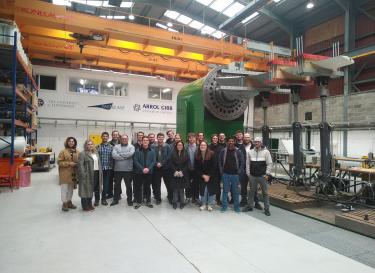A collaborative approach to global energy futures
About
There is a large and expanding body of world-class energy research at the University of Edinburgh, involving expertise in science and engineering, environmental sciences, social sciences and beyond. Building on Edinburgh University’s strong intellectual traditions, and linking with businesses, policymakers and wider society, we are collectively responding to one of the major societal challenges of the 21st century.
Drawing on expertise from across the University of Edinburgh, Energy@Edinburgh is a leading source of innovation, knowledge and insight, working to secure a fair and sustainable energy future for all.
February 5, 2025
February 4, 2025
Friday, February 20, 2026 - 14:30
Wednesday, October 15, 2025 - 15:30
Tuesday, June 17, 2025 - 15:00
Monday, June 16, 2025 - 09:00







